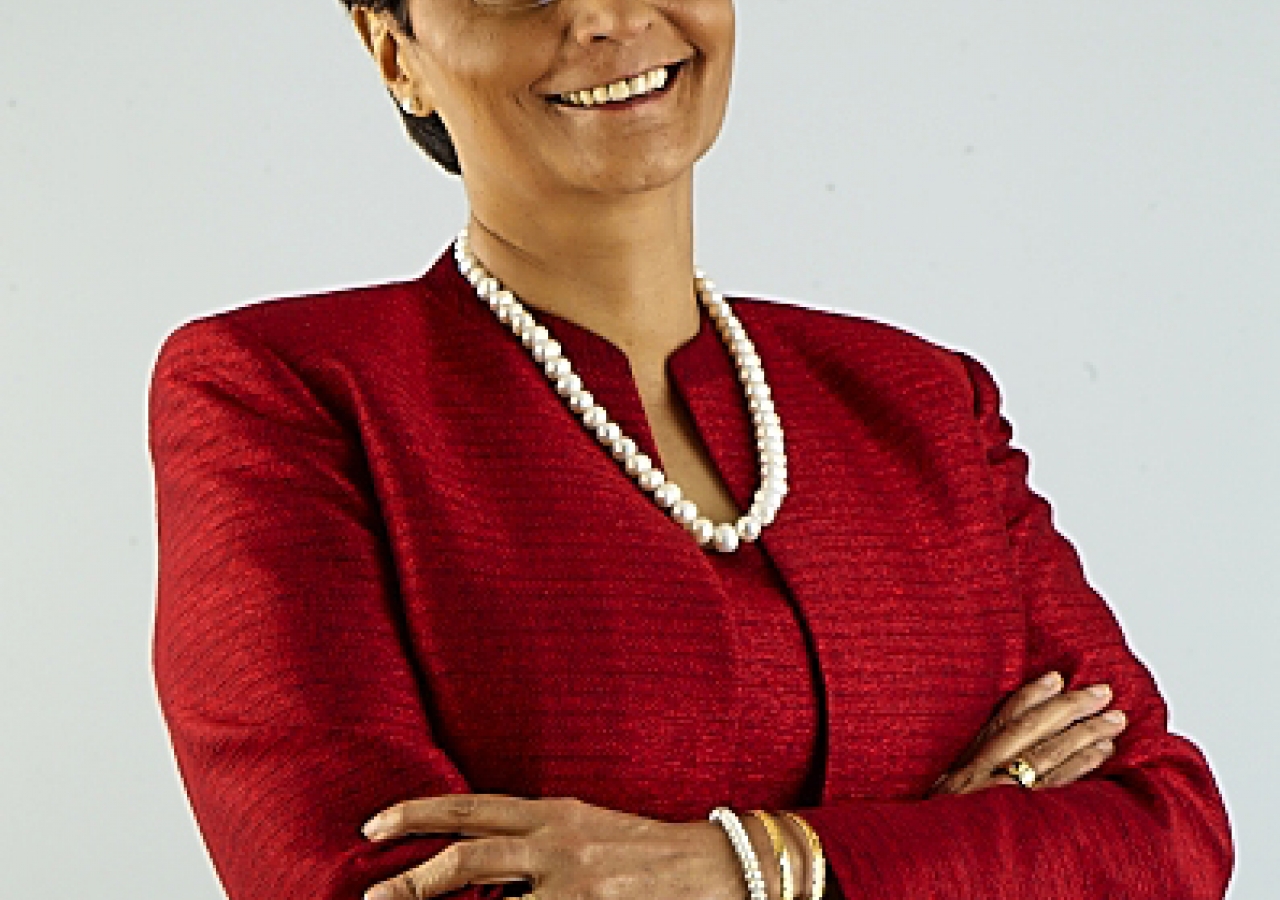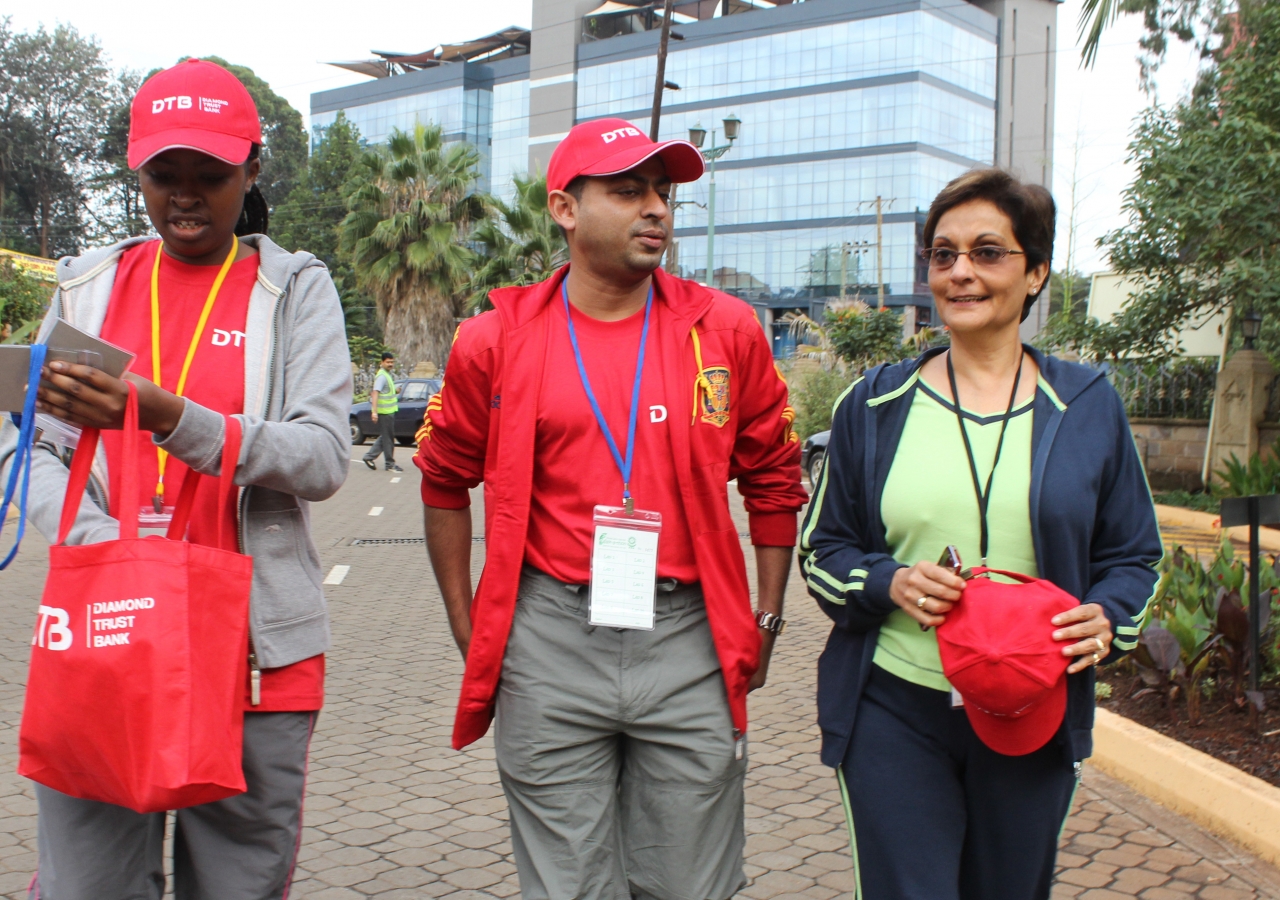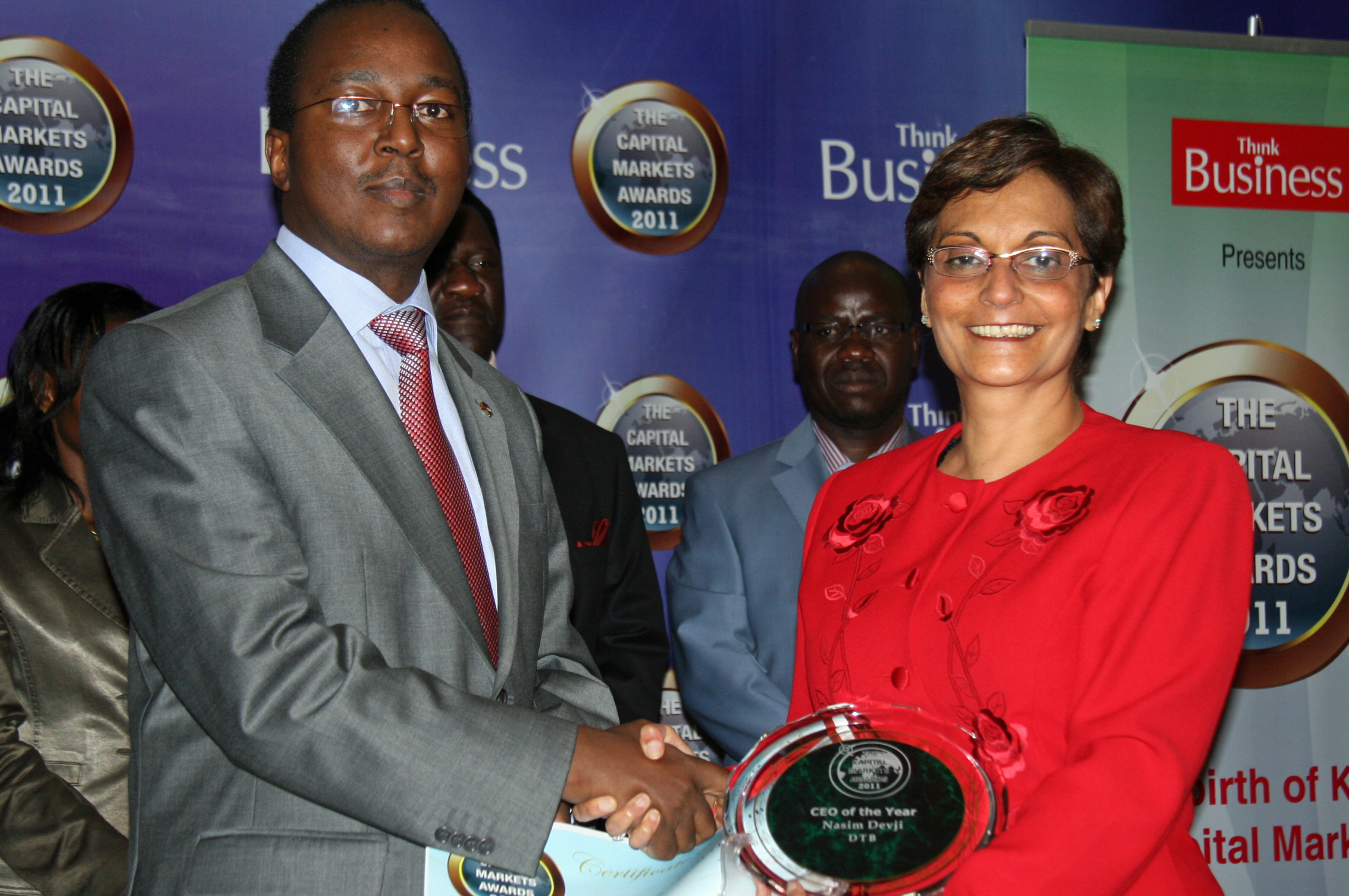Last October, Devji was named Leading African Woman in Business one of the prestigious Africa investor Investment and Business Leader Awards. In 2009, she was awarded the lifetime achievement in banking award by her peers, and most recently was named the 2010 CEO of the Year by the Kenyan Capital Markets Authority at the Annual Kenyan Banking Awards organised by Think Business Magazine.
Yasmin Madhani interviewed Devji for the December 2010 edition of epb news, a newsletter of the Aga Khan Economic Planning Board for Kenya. The interview has been adapted for TheIsmaili.org.
Yasmin Madhani (EPB): What are your views on being a woman in a sector that is traditionally male dominated, and what are the biggest challenges you face?
Nasim Devji: Reflecting on my professional career, I realise that I have always worked in a male dominated environment. In the 1980s, I worked in the oil sector as a tax specialist in the UK, where it was not so common to see women in management positions. I remained focussed and managed to work my way to the top in spite of barriers – either gender based or otherwise – that I had to contend with.
EPB: You moved from the United Kingdom to join Diamond Trust Bank (DTB) in Kenya. What motivated your decision to move?
ND: I was born and raised in Kahama, Tanzania and moved to the UK for further education. I qualified as a Chartered Accountant and went on to become a tax specialist in the oil industry. Even though from a career standpoint, I had reached the top, I was feeling unfulfilled. I returned to Africa to join DTB which offered me a platform to continue with my career as well as work with an Imamat institution.
EPB: Under your leadership, DTB has grown significantly. What has made it one of the fastest growing banks in the region? What are your top tips for one to be a good leader?
ND: Despite unrelenting competition in the banking industry, DTB has been successful largely because of its focus on being “customer-centric” – that is, being connected to customers and their needs. The three pillars underlying our customer service are: convenience – DTB was the first bank to provide seven-day banking with extended hours; access – this has been achieved by expanding the branch footprint and offering alternate channels such as internet and mobile banking; and responsiveness – addressing our customers' needs.
EPB: What are your top tips for one to be a good leader?
ND: A good leader should always lead by example and be true to one self. One has to be a good team player, sincere and transparent. Remain ethical under all circumstances. These values should be inculcated throughout the institution.
EPB: DTB converted from primarily what was an asset finance bank into a fully-fledged commercial institution in 1997, and added numerous branches. What brought about the rapid expansion?
ND: DTB's expansion in the last four years has been underpinned by AKFED's mandate of bringing about economic development in the communities in which we operate. Alhamdullilah, by the end of this year, DTB will have over 80 branches across the region with a staff complement of over a 1 300. Furthermore, DTB's entry into Burundi last year – the first AKDN agency to establish its presence [there] – is a testimony to fulfilling this mandate.
EPB: What are some of the top items on DTB's future agenda?
ND: The Bank's long term goal is to be a pan-African commercial bank with a focus on small to medium enterprises, which are key to the economic growth in this region. In this respect the bank will continue with its expansion strategy and strive to be one of the leading banks in terms of customer products and services including reaching out to the “unbanked” population. This will require us to remain at the cutting edge of technology and innovation.
EPB: Please tell us about the bank's internship programme and your views on career enhancement for youth.
ND: The programme is particularly active in Kenya. The purpose of the programme has been twofold: it gives an opportunity for the youth to decide on their choice of career whilst exposing them to the work environment and allows the Bank to identify the talent pipeline that would feed into our Graduate Management Trainee (GMT) programme.
We have several examples of individuals who have joined either as interns or GMT or both, who have had the opportunity to rapidly rise and grow in their careers some of who are now in senior positions within the group. I would like to emphasise that the GMT programme requires commitment, dedication and single-mindedness to succeed. Undoubtedly, they have a bright future with the institution.
EPB: You have achieved so many milestones throughout your entire career; what is next?
ND: Nothing is static in life. I pray to remain focused in discharging my responsibilities. I spend some time on personal reflection and I enjoy spending quality time with my family. I like reading too. I would love to mentor and coach our youth.
I truly enjoy what I do and my family's unwavering support allows me to manage a good work life balance.











